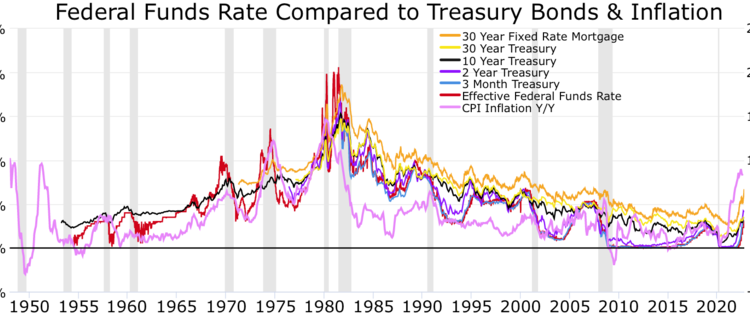As the Fed cuts rates, will other central banks follow or hold back?
- The Federal Reserve’s expected rate cut signals other central banks to follow suit.
- Central banks in the eurozone, U.K., and Canada have already lowered rates.
- Countries like India and South Korea are waiting for the Fed’s move before acting.
- Lowering rates ahead of the Fed risks currency depreciation and inflation.
- The Fed’s action could lead to increased foreign capital inflows to developing countries.
- Some central banks remain cautious despite the Fed’s cuts, focusing on local economic conditions.
- Brazil’s central bank may raise rates after the Fed cuts, highlighting diverse global responses.
The Federal Reserve is expected to announce a rate cut, which could encourage central banks around the world to follow suit, particularly those concerned about their domestic economic growth. Recently, central banks in the eurozone, the U.K., and Canada have already begun to lower interest rates. However, others, including those in India, South Korea, and South Africa, have been hesitant to make similar moves, waiting for the Fed’s lead. nnLowering rates before the Fed can lead to a depreciation of national currencies, making imports more expensive and potentially causing inflation. For instance, South Africa’s central bank is poised to lower borrowing costs soon, as the Fed’s actions may help stabilize their currency. nnIn Asia, where inflation has not surged as dramatically as in other regions, central banks are now considering cuts as inflation is expected to slow. Economists predict that India’s central bank will lower rates next month, with South Korea and Thailand likely to follow by year-end. Indonesia has already made a surprise cut, anticipating the Fed’s move, which is expected to support its currency. nnWhile many central banks are relieved by the Fed’s impending cuts, some, like the European Central Bank and the Bank of England, are taking a cautious approach. They are concerned about wage growth and labor market tightness, which are not directly influenced by global economic conditions. nnLooking ahead, the Fed’s rate cut is expected to ease financial market uncertainties and could help prevent a global economic slowdown. However, some countries, like Brazil and Russia, face unique challenges that may lead them to diverge from the Fed’s path. Brazil’s central bank might raise rates due to rising inflation expectations, while Russia has recently increased its key rate amid economic pressures. nnOverall, the Fed’s decision to cut rates could be a pivotal moment for global monetary policy, potentially leading to a broader easing of restrictions that have been in place to combat inflation.·
Factuality Level: 7
Factuality Justification: The article provides a detailed analysis of the potential impacts of the Federal Reserve’s rate cut on global central banks, supported by quotes from economists and relevant data. However, it includes some speculative elements and opinions that could be interpreted as bias, particularly regarding the future actions of various central banks. While the information is largely accurate, the speculative nature and some subjective interpretations slightly detract from its overall factuality.·
Noise Level: 7
Noise Justification: The article provides a detailed analysis of the potential impacts of the Federal Reserve’s rate cut on global central banks, discussing various countries’ responses and economic conditions. It includes expert opinions and data, maintaining relevance throughout. However, it could benefit from deeper exploration of the long-term implications and accountability of decision-makers.·
Public Companies: Capital Economics (), JPMorgan (JPM), Bank of America (BAC), European Central Bank (), Bank of England (), Barclays (BARC), BNP Paribas ()
Key People: Jason Tuvey (Economist at Capital Economics), Christine Lagarde (President of the European Central Bank), Philip Lane (Chief Economist at the European Central Bank), Elvira Nabiullina (Governor of the Central Bank of Russia), Luigi Speranza (Chief Economist at BNP Paribas), Christian Keller (Head of Economics Research at Barclays)
Financial Relevance: Yes
Financial Markets Impacted: Central banks around the world, particularly those in Asia and Latin America, may be impacted by the Federal Reserve’s expected rate cut. The decision could encourage some central banks to lower their borrowing costs as well, affecting foreign exchange rates and inflationary pressures. Investors expect India’s central bank to lower borrowing costs next month, while South Korea and Thailand are set to move before the end of the year.
Financial Rating Justification: The article discusses the potential impact of the Federal Reserve’s rate cut on other central banks around the world, particularly in Asia and Latin America. This decision could lead to changes in their borrowing costs and exchange rates, affecting inflationary pressures and global economic growth.
Presence Of Extreme Event: No
Nature Of Extreme Event: No
Impact Rating Of The Extreme Event: No
Extreme Rating Justification: The article discusses the Federal Reserve’s expected rate cut and its implications for global central banks, but it does not mention any extreme event occurring in the last 48 hours.·
Move Size: No market move size mentioned.
Sector: All
Direction: Up
Magnitude: Large
Affected Instruments: Stocks
 www.wsj.com
www.wsj.com 





